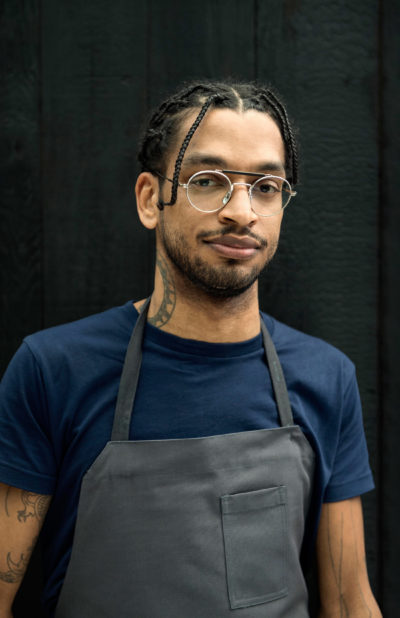An Evolutionary Rumination on Having Cake and Eating it Too
By David Zilber, Astanor advisor

Taste is Darwinian. It’s evolved for a purpose. Though blindly constructed, the joy of an ice cream cone, the satisfaction of a steak, the aromatic thrill of a curry, or the reward of iced cake are all emotional movements—choreographed dances of sensation and feeling—that have evolved to keep us alive. But more so than that, taste has evolved to fill our lives with both pleasure and variety, meaning and purpose. Taste has served as a deciding factor in our evolutionary history as a species, but also as a deeply enmeshed feature of our daily existence.
It follows that we’re attracted to the minerals and organic molecules that our body needs to both build and maintain itself (fats, sugars, umami and salt…) and we’re also repelled by the poisons that would do our bodies harm (bitter toxins, harsh acids or pungent peptides). But taste and moreover, the aromas that render those tastes complex and multidimensional, is no binary. It’s never a yes or no, do or don’t imperative. The subtleties of culture, like the nuances of local dialects, informs what we eat, the traditions surrounding how we eat it, and just how far we get to bend to pre-prescribed structure of our biological blueprint.
We suffer the pain of capsaicin, the bitter pang of dark coffee, the bubble pain of acidic carbonation, all because… we like it. We like stinky cheeses that border on spoilt, pungent fish sauces that transform our sautés, and tropical fruits that “smell like hell but taste like heaven”. Human culture is as variable as the genes that created the minds within which it sits. Somehow though, true to mother nature’s ceaseless cleverness, the evolution of human culture has marched on to outstrip the biological evolution that got us this far in the first place.
As a chef and a fermenter, I can value and laude the merits of such a scenario. But the skeptical scientist in me, the critic who scrutinizes the very trajectory of human history, also sees the pitfalls in the very thing that makes us unique as a species on earth.
The tastes we crave were fine tuned to keep our bodies in balance within the environments that shaped us. The forests and savannahs of sub-Saharan Africa, the jungles of hills of south Asia, the seasonal riverbanks of the Nile and Euphrates, dictated, above all else, what humans ate, and in what amounts, more so than other factors. Human tastes were a mirror of the ecologies that we lived in over the course of generations… until we weren’t. Today, we are no longer restricted to the growing seasons of edible plants, the dictates of local weather, nor even the limitations of the code of life itself.
As such, we found ourselves burdened with confusing concerns. In the developed world, which now serves as a model to be emulated, overabundance causes more harm than want. While medicine and science have all but eradicated the worst demons to have haunted humanity, non-communicable diseases have sprung up in their wake. Heart disease, diabetes, high blood pressure… ailments that would have been unheard of 10,000 years ago, are now epidemics of our own making as our taste has led us astray. We crave the oversaturation, highly contrasted, and purified forms of the molecules we’ve sought out for millennia, but now with no natural boundaries to limit their procurement.
Our environments are now bent to our will in the quest to produce them at scale, cheaply, whenever we desire them. At the expense of the ground beneath our feet, the very earth from which we are formed, we waste what has taken eons to accrete, in exchange for fleeting treats.
If the combination of our evolved tastes and the mis-geared ratios between our corporeal needs and our cerebral desires are proving such a precarious combination, we mustn’t forget that that which got us into our impending predicaments, is also the only thing that can get us out.
We need to lean into our collective, cultural cleverness. And use our collective knowledge to engineer solutions towards deliciousness that simultaneously steer us away from damage. Damage to our own bodies, but beyond that, the oceans, the soil… Evolution creates mind boggling complexity but ironically, does so by working only with what’s already on hand. It grabs at the lowest hanging fruit to produce its results. Evolution has never built a step ladder, nor an articulated cherry picker. But it has built us, who have.
It’s time to shake off the worser demons of our nature and reimagine how to satisfy our deeply embedded emotional impellers, and find solutions that may seem roundabout at the outset, but worth every strain of the imagination in hindsight.
Despite what we’ve thought, there are ways to have our cake and eat it too. But it will take every ounce of ingenuity and collective will to figure out how to solve the impossible and save ourselves in the meanwhile.

David Zilber is a chef, fermentation specialist, and photographer who hails from Toronto, Canada. David has cooked from coast to coast across North America, and around the world for almost 20 years. He also spent 6 years working at Restaurant Noma, in Copenhagen from 2014 to 2020. There, he quickly joined the Fermentation Lab, where as its director from 2016 to 2020 he helped push Noma’s innovation forward in the worlds of both gastronomy and fermentation. In his time there, he co-authored The Noma Guide to Fermentation, a book that garnered global accolades and became a New York Times Bestselling cookbook.
